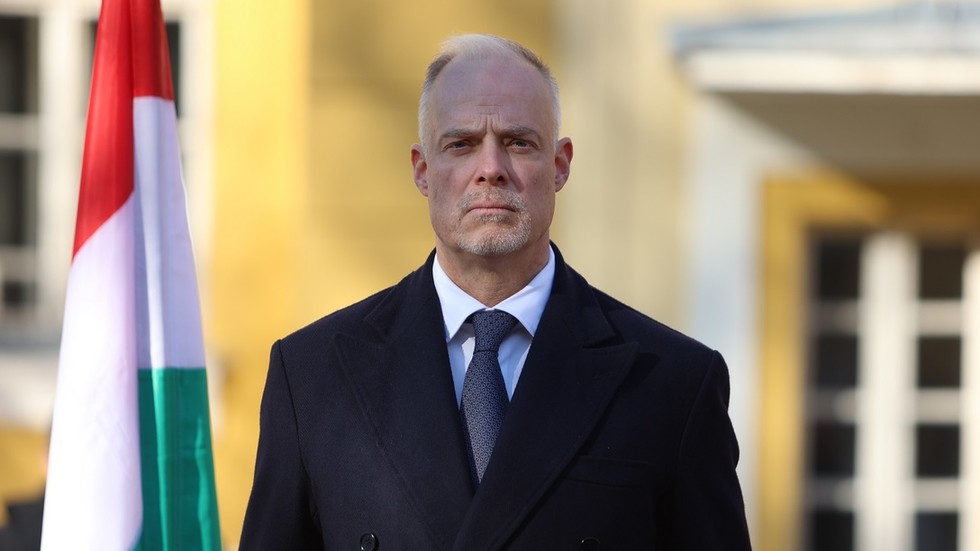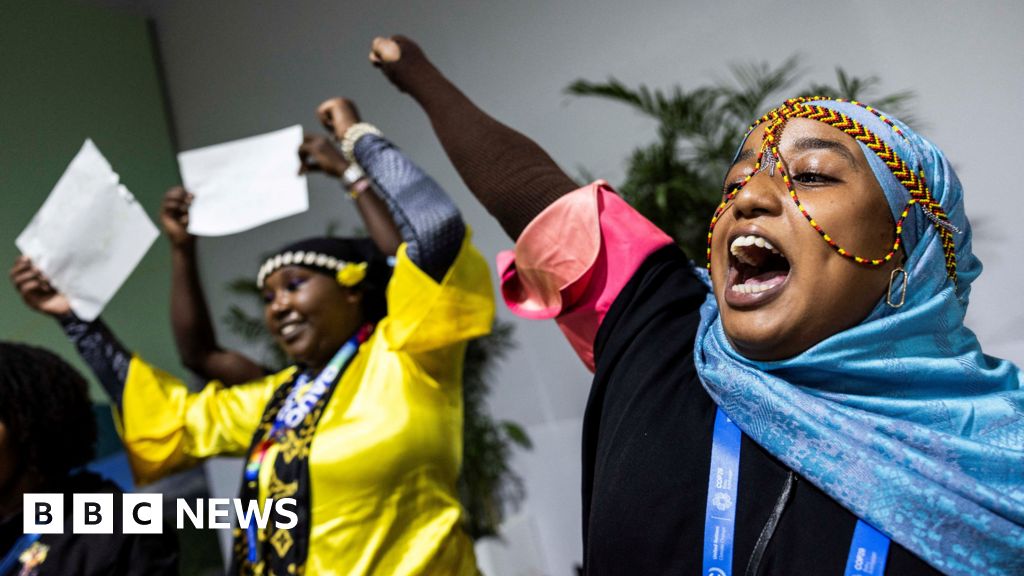U.K. Conservative Party leadership contenders, Kemi Badenoch (L) and Robert Jenrick (R).
Getty Images News | Getty Images
LONDON — The U.K.'s opposition Conservative Party on Saturday named right-wing Kemi Badenoch as its new leader, closing a long-drawn-out runoff after the Tories' landslide electoral defeat ushered in a moment of reckoning for the party.
Badenoch ousted Robert Jenrick to secure the top job, replacing outgoing leader and former Prime Minister Rishi Sunak.
The decision follows a three-month contest, during which an initial shortlist of six candidates whittled down to two through four rounds of voting by Tory Members of Parliament (MP). The ultimate winner was decided by Conservative Party members.
Badenoch's victory confirms a further shift to the right for the U.K.'s oldest political party, suggesting it may take a more hardline approach toward immigration, climate measures and culture politics in opposition.
Fellow right-wing candidates Badenoch and Jenrick were seen as unlikely opponents in the final vote, with some MPs suggesting that tactical voting intended to hurt their least favorite figure had instead backfired on former frontrunner and more centrist contender James Cleverly.
The Conservatives suffered a bruising defeat in the U.K.'s July 4 general election, with Prime Minister Keir Starmer's Labour government securing a landslide victory as voters grew weary of ongoing leadership changes and political infighting at the tail end of 14 years of Tory rule.
Who is Kemi Badenoch?
Former Business Minister Badenoch worked in IT and banking before entering the political sphere, gaining election as an MP in 2017 and serving in ministerial roles under three prime ministers.
A staunch proponent of Brexit, 44-year-old Badenoch is known for her outspoken views and tough stance on divisive issues such as immigration and rights for transgender people, including in her role as minister for women and equalities.
Conservative leadership contender Kemi Badenoch delivers a speech on the final day of Conservative party conference at Birmingham ICC Arena on October 2, 2024 in Birmingham, England.
Dan Kitwood | Getty Images News | Getty Images
During the leadership race — her second in two years, after placing fourth in a 2022 runoff — Badenoch vowed to reset the Conservative Party, arguing they had become too much like Labour and proposing smaller state intervention and a greater focus on families.
Her strong political views have courted controversy over the years, however, with recent comments about maternity pay having "gone too far" sparking a backlash, while her suggestion that "not all cultures are equally valid" reinforced her image as a so-called culture warrior.
Jenrick, once a close ally of Sunak, began his political career as a centrist figure, but has since aligned himself with the right within the party, making regaining control of the U.K.'s borders a central tenet of his leadership pitch.
Conservative Party leadership candidate, Robert Jenrick speaks at a 'meet the leaders' event during day three of the Conservative Party Conference at Birmingham ICC on October 01, 2024 in Birmingham, England.
Ian Forsyth | Getty Images News | Getty Images
The 42-year-ol former lawyer resigned from his role as immigration minister in December 2023, insisting that Sunak's Rwanda legislation did not go far enough. He further vowed to withdraw Britain from the European Convention of Human Rights to boost deportations.
Jenrick's increasingly hard-line stance has pushed him to the center of several scandals over recent years, including in 2023, when he ordered that murals of cartoon characters at a reception center for child asylum seekers in Dover be painted over.
Earlier this week, he was also condemned by Starmer for suggesting that police had "concealed" information on the killing of three girls in Southport in July, which at the time sparked a wave of far-right violence.
What does it mean for the Labour government?
The leadership win is unlikely to have any immediate impact on the current government, with Labour holding its second-largest parliamentary majority in history.
It is also quite possible that the Tories' new leader will no longer be in place by the time the U.K. votes for its next government in up to five years.
However, a reinvigorated opposition party will be better placed to apply pressure on Starmer and rebuke some of his key policies.
In the meantime, the return of Brexiteer Nigel Farage to the political fray in June, along with surprise electoral gains for his Reform UK Party, could see the Conservatives shift further right in order to stem further electoral losses.
Some analysts have suggested that the newly reformed Tory party could even partner with Reform's Farage to bolster support — a suggestion to which Farage has said "never say never."

.png) 2 weeks ago
14
2 weeks ago
14









